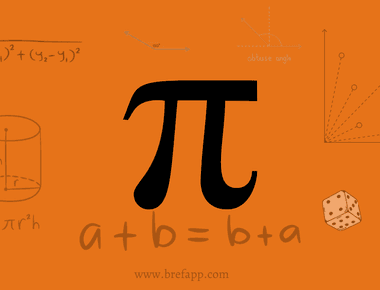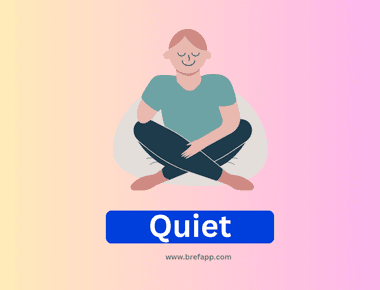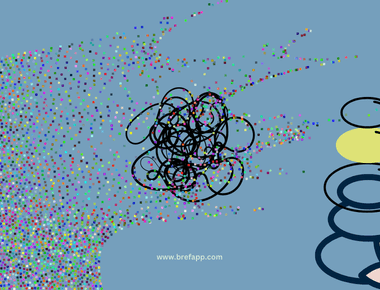
Blink - The Power of Thinking Without Thinking - Book Summary

Blink : The Power of Thinking Without Thinking is a book written by Malcolm Gladwell that explores the concept of intuition and its role in decision-making. The main purpose of the book is to challenge the notion that deliberate, rational thinking is always the best approach when making decisions, and to highlight the power of our unconscious mind in making snap judgments.
Malcolm Gladwell is a journalist and author who has written several other bestselling books, including “The Tipping Point” and “Outliers.” He is known for his unique style of storytelling and his ability to make complex ideas accessible to a broad audience.
The Theory of Thin-Slicing
Thin-slicing is the ability of our unconscious mind to make quick judgments based on limited information, often in a matter of seconds. It is a natural and necessary part of our decision-making process and can be a valuable tool in certain situations.
Thin-slicing is based on the idea that our brains are capable of processing vast amounts of information without us being consciously aware of it. This allows us to make snap judgments based on cues such as body language, tone of voice, and facial expressions.
One of the benefits of thin-slicing is that it allows us to make quick decisions in situations where we don’t have all the information we need. For example, it can help us make snap judgments in emergency situations or when we need to make a quick decision based on limited information.
However, there are also limitations to thin-slicing. In situations where our biases and stereotypes are strong, thin-slicing can lead us astray and result in poor decisions. For example, if we have a strong bias against a certain group of people, our thin-slicing abilities may be influenced by this bias and lead us to make unfair judgments.
“ Thin-slicing is a powerful tool, but it is important to be aware of its limitations and to strive to overcome our biases in order to make better decisions.”
The Power of Intuition
Intuition is the ability to make quick judgments based on our emotions and experiences, often without conscious reasoning. It can be a powerful force in decision-making, particularly in situations where we are dealing with complex and uncertain information.
Intuition can be beneficial in situations where we don’t have all the information we need to make a decision. For example, it can help us make quick decisions in emergency situations or in situations where we need to act quickly to avoid harm.
Intuition can also be valuable in fields such as art, music, and sports, where a person’s instincts and gut feelings can often lead to creative breakthroughs or exceptional performances.
However, intuition can also be detrimental in situations where our emotions and biases are too strong. For example, if we have a strong bias against a certain group of people, our intuition may be influenced by this bias and lead us to make unfair judgments.
“ Intuition can be a powerful tool, but it is important to be aware of its limitations and to strive to overcome our biases in order to make better decisions. It is also important to balance intuition with deliberate, rational thinking to ensure that our decisions are based on both instinct and analysis.”
The influence of context and culture
Our environment and cultural background play a significant role in shaping our perceptions and decisions. Our experiences, beliefs, and values can influence how we perceive and interpret information, and can even affect our ability to thin-slice effectively.
For example, cultural biases can influence our thin-slicing abilities by affecting how we perceive certain groups of people. If we are raised in a culture that values conformity and obedience, we may be more likely to perceive people who challenge authority as aggressive or disrespectful. This bias can then influence our thin-slicing abilities, leading us to make inaccurate judgments based on limited information.
Similarly, our cultural background can also affect how we interpret nonverbal cues such as body language and facial expressions. For example, in some cultures, direct eye contact is a sign of respect, while in others it may be seen as confrontational or aggressive. These differences can affect our ability to read cultural and interpret nonverbal cues accurately, potentially leading to miscommunication and misunderstandings.
“ Our environment and cultural background can have a significant impact on our thin-slicing abilities and our overall decision-making process. It is important to be aware of these biases and strive to overcome them in order to make better decisions.”
The Role of Experience and Expertise
Experience and expertise can play a critical role in enhancing our intuition and decision-making abilities. Through repeated exposure to certain situations and stimuli, our brains become more adept at processing information and making quick judgments.
Experts in a particular field often have a wealth of experience and knowledge that allows them to thin-slice effectively and make accurate decisions based on limited information. For example, a seasoned firefighter may be able to quickly assess a dangerous situation and make split-second decisions that save lives, while a novice firefighter may struggle to make the same judgments.
However, experience and expertise can also lead to overconfidence and bias. If a person has been successful in a certain area for a long period of time, they may become too confident in their ability to make accurate judgments, leading them to overlook important information or make mistakes.
The relationship between intuition and deliberate practice is complex. Deliberate practice involves intentionally engaging in activities that challenge and improve our skills, with the goal of achieving mastery in a particular field. Through deliberate practice, experts are able to develop a deep understanding of their field, which can enhance their intuition and decision-making abilities.
However, deliberate practice alone is not enough to develop expertise. It must be combined with experience, feedback, and a willingness to learn and adapt in order to truly excel in a given field.
“ Experience and expertise can be powerful tools in enhancing our intuition and decision-making abilities, but it is important to be aware of the potential pitfalls of overconfidence and bias remaining. Combining deliberate practice with experience and feedback can help develop expertise and improve our decision-making abilities over time.”
The dark side of thin-slicing
Thin-slicing can be a powerful tool for decision-making, but it can also have negative consequences. When we thin-slice, we rely on our brain’s ability to quickly categorize and make judgments based on limited information. However, this process can also lead to stereotyping and prejudice if we are not careful.
Biases and heuristics, or mental shortcuts that our brains use to process information quickly, can also impact our decision-making. For example, confirmation bias is the tendency to seek out information that confirms our existing beliefs or opinions, while ignoring information that contradicts them. This can lead to flawed decision-making if we are not willing to consider all relevant information.
Similarly, heuristic availability is the tendency to rely on information that is readily available to us, rather than seeking out new information or considering alternative perspectives. This can lead to errors in judgment if the information we rely on is incomplete or biased.
In situations where we rely too heavily on thin-slicing, biases, and heuristics, we run the risk of making inaccurate judgments and decisions that can have negative consequences. For example, if we rely on stereotypes to make judgments about people, we may overlook their individual qualities and characteristics, leading to unfair treatment and discrimination.
It is important to be aware of the potential negative consequences of thin-slicing, biases, and heuristics, and to strive to overcome them by seeking out diverse perspectives and considering all relevant information when making decisions.
FinalThoughts
In “Blink: The Power of Thinking Without Thinking,” author Malcolm Gladwell explores the power of intuition and thin-slicing in decision-making. He argues that our brains are capable of making quick and accurate judgments based on limited information, and that this ability can be harnessed to make better decisions.
However, Gladwell also highlights the potential limitations of intuition and thin-slicing, such as biases and heuristics that can lead to inaccurate judgments and negative outcomes. He stresses the importance of being aware of these limitations and striving to overcome them in order to make more informed and equitable decisions.
“ The book encourages readers to rethink the role of intuition and thin-slicing in decision-making, and to consider the ways in which these abilities can be honed and improved through deliberate practice and a willingness to learn and adapt.”
While intuition and thin-slicing can be powerful tools for decision-making, they are not infallible, and it is important to remain aware of their limitations and potential pitfalls. By combining these abilities with deliberate practice, experience, and a willingness to learn and adapt, we can strive to make more informed and equitable decisions in all areas of our lives.
Tags
Related Posts



Quick Links
Categories



